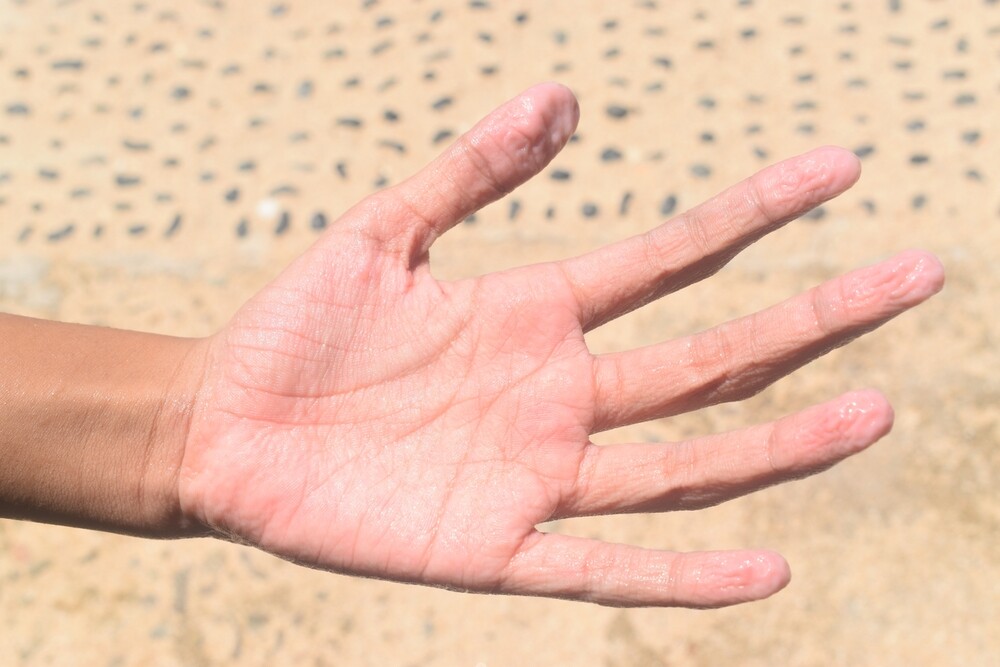Evolution has obviously done a lot for the human species. There’s one particular feature, however, that you might not realize comes into play every time you grab a fresh White Claw from a cooler. No, I’m not talking about opposable thumbs, though I do love the idea of someone who just figured out how to use their thumbs and decided to write an article about it: “The Fifth, Weird Finger That Stops Us From Doing Nothing More Than Uselessly Batting Items Around.”
This one’s a lot more subtle, and it’s something you’re definitely familiar with — and possibly annoyed by.
What I’m talking about is our fingers’ habit of getting pruny or wrinkly when exposed to a wet environment.
Don’t Miss
Did this develop simply as a way to inform Neanderthals that they’d spent enough time in the bath and needed to go hunt again? No, it served a much more physically important purpose, at least according to a widely-accepted theory: Our fingers prune up because the wrinkly surface provides better purchase when trying to grip a wet surface. Our ancestors might have found it useful when scrabbling up wet outcroppings, but in the modern life, it’s still helping us wash dishes, and yes, hold onto our beers.
Shutterstock
Whether that was the evolutionary purpose isn’t scientifically proven, but the efficacy is. Researchers actually set out to see if pruny fingers had better grip on wet objects with an experiment involving moisture-covered marbles, and the results were clear. Pruned-up fingers were able to move the wet marbles 12 percent faster than fresh, smooth fingertips.
So, the next time you’re gently swaying in the backyard two beers too deep after having spent the last four hours in the pool, thank the powers of science for keeping that pilsner glass in your hand from smashing onto patio.

